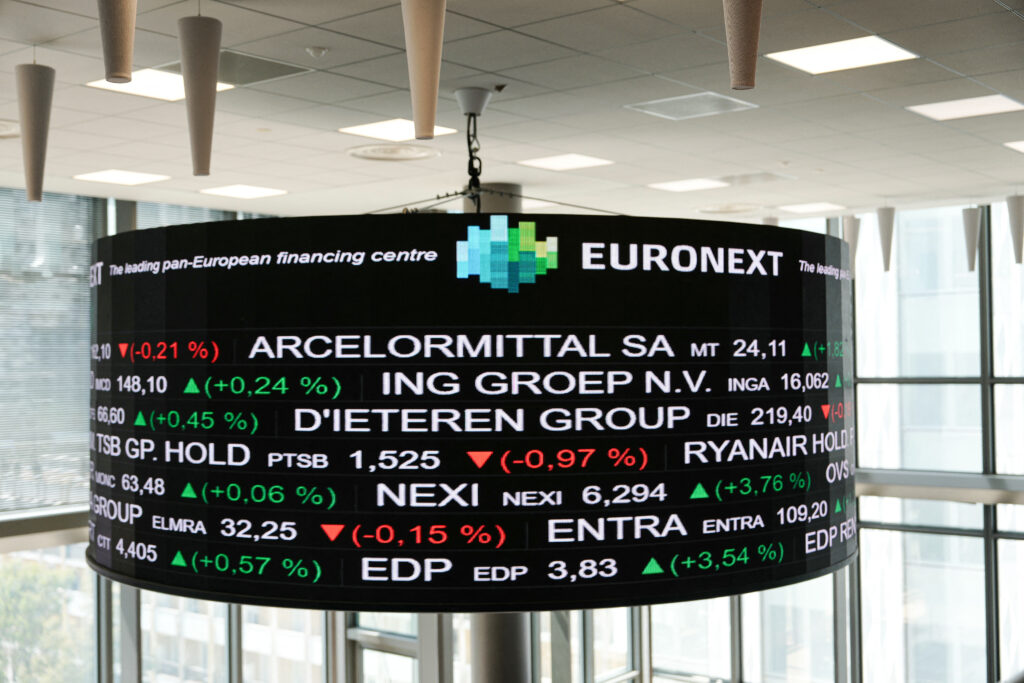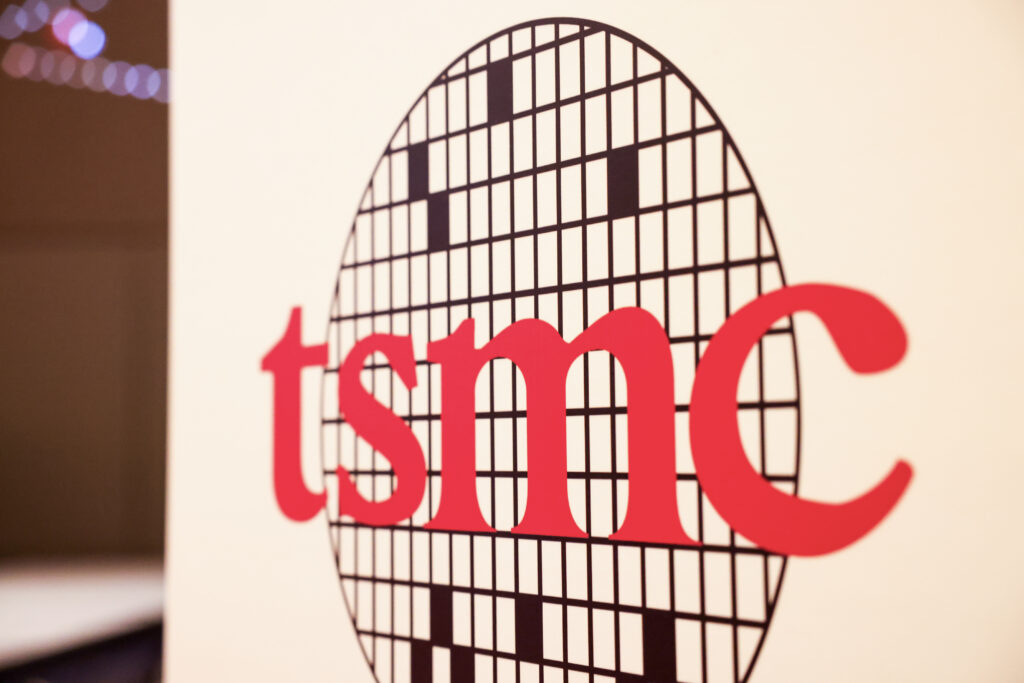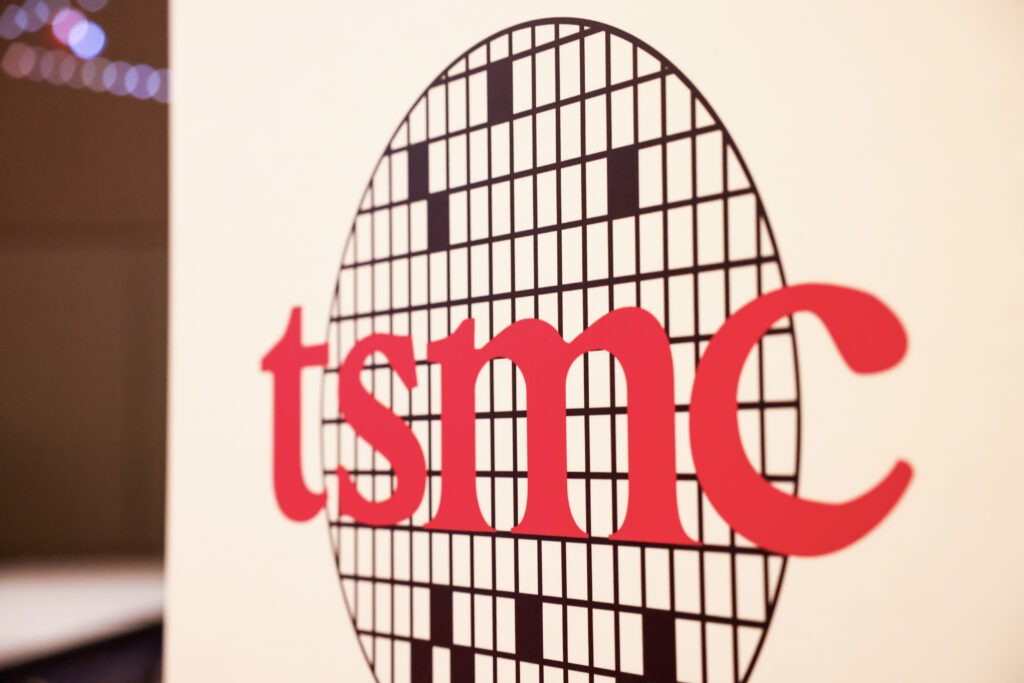Syrie: Chareh retire ses troupes de Soueida pour éviter l’affrontement avec Israël
Le président intérimaire syrien Ahmad al-Chareh, disant vouloir éviter une “guerre ouverte” avec Israël, a retiré jeudi ses troupes de la ville à majorité druze de Soueida, où un photographe de l’AFP a vu au moins 15 corps gisant dans la rue.Israël avait menacé d’intensifier ses frappes si le pouvoir syrien ne quittait pas cette province du sud de la Syrie.Les habitants de Soueida ont découvert jeudi matin une ville sinistrée. Un correspondant de l’AFP a compté 15 cadavres gisant dans le centre de la ville, sans pouvoir indiquer s’il s’agissait de combattants ou de civils.Les violences intercommunautaires ont fait plus de 370 morts depuis que des combats ont éclaté dimanche, selon l’Observatoire syrien des droits de l’Homme (OSDH).Elles viennent ébranler encore plus le pouvoir d’Ahmad al-Chareh qui a renversé, à la tête d’une coalition de groupes rebelles islamistes sunnites, l’ex-président Bachar al-Assad en décembre, dans un pays meurtri par près de 14 ans de guerre civile.Jeudi matin, les forces gouvernementales s’étaient retirées de toute la province à majorité druze, ont indiqué l’OSDH et des témoins à l’AFP.Des membres des forces gouvernementales ont affirmé à un correspondant de l’AFP posté aux abords de la province qu’ils avaient reçu l’ordre de se retirer peu avant minuit et avaient achevé leur redéploiement à l’aube.Dans un discours télévisé pendant la nuit, Ahmad al-Chareh avait annoncé le transfert “à des groupes locaux” et des dignitaires religieux druzes de la responsabilité du maintien de la sécurité à Soueida.”Nous avons donné la priorité à l’intérêt des Syriens plutôt qu’au chaos et à la destruction”, a déclaré M. al-Chareh, disant avoir voulu éviter “une guerre ouverte” avec Israël dont il a condamné l’intervention.Quelques heures plus tôt, Israël avait bombardé plusieurs cibles au coeur de Damas.Une aile d’un bâtiment du quartier général de l’armée syrienne, contigu au ministère de la Défense, a été détruite par ces frappes, qui ont fait trois morts selon les autorités. Israël a également mené d’autres frappes aux abords du palais présidentiel et dans les environs de Damas.- Médiation américaine -Les premiers affrontements avaient éclaté dimanche entre des tribus bédouines sunnites et des combattants druzes, aux relations tendues depuis des décennies. Le gouvernement syrien est alors intervenu avec l’objectif affiché de rétablir l’ordre et a déployé ses forces mardi à Soueida, jusque là contrôlée par des combattants druzes. Mais l’OSDH, des témoins et des groupes druzes l’ont accusé de combattre les druzes et fait état de nombreuses exactions.M. Chareh a souligné que “l’intervention efficace de la médiation américaine, arabe et turque, a sauvé la région d’un sort inconnu”.Les Etats-Unis, alliés d’Israël et qui affichent leur soutien au nouveau dirigeant syrien malgré son passé jihadiste, avaient annoncé mercredi soir qu’un accord avait été conclu pour rétablir le calme en Syrie.”Nous nous sommes mis d’accord sur des mesures spécifiques qui permettront de mettre fin à cette situation troublante et terrifiante dès ce soir”, a écrit le secrétaire d’Etat américain Marco Rubio sur le réseau X.La porte-parole du département d’Etat, Tammy Bruce, avait auparavant appelé le gouvernement syrien à quitter la zone de conflit dans le sud du pays afin d’apaiser les tensions avec Israël.- “Exécutions sommaires” -Selon l’OSDH, parmi les morts dans les violences des derniers jours, 27 civils ont été victimes d'”exécutions sommaires” par les forces gouvernementales.Dans son discours, le président intérimaire a promis de faire “rendre des comptes” aux auteurs d’exactions contre “notre peuple druze, qui est sous la protection et la responsabilité de l’Etat”.Il avait fait la même promesse après le massacre de centaines de membres de la communauté alaouite, dont est issu Bachar al-Assad, début mars sur le littoral syrien. Mais une commission d’enquête sur ces massacres n’a jamais rendu ses conclusions.La communauté druze de Syrie était, avant la guerre civile, forte de quelque 700.000 personnes, présente principalement à Soueida. Cette minorité ésotérique issue d’une branche de l’islam est aussi implantée au Liban et en Israël.A la frontière entre Israël et la Syrie, à Majdal Shams, des dizaines de personnes se sont réunies jeudi matin, là où des scènes de chaos avaient eu lieu la veille quand des centaines de druzes ont forcé cette frontière dans les deux sens. Des jeunes hommes longeaient jeudi ce segment de la frontière en brandissant des drapeaux druzes aux cinq couleurs. Un enfant druze syrien agitait un petit drapeau israélien. Son père, qui n’a pas souhaité donner son nom, a expliqué qu’ils habitent le village voisin de Hader, en Syrie, et ont retrouvé leurs cousins à Majdal Shams, côté israélien. “On n’a pas dormi de la nuit, on n’a fait que parler”, dit-il.
Syrie: Chareh retire ses troupes de Soueida pour éviter l’affrontement avec Israël
Le président intérimaire syrien Ahmad al-Chareh, disant vouloir éviter une “guerre ouverte” avec Israël, a retiré jeudi ses troupes de la ville à majorité druze de Soueida, où un photographe de l’AFP a vu au moins 15 corps gisant dans la rue.Israël avait menacé d’intensifier ses frappes si le pouvoir syrien ne quittait pas cette province du sud de la Syrie.Les habitants de Soueida ont découvert jeudi matin une ville sinistrée. Un correspondant de l’AFP a compté 15 cadavres gisant dans le centre de la ville, sans pouvoir indiquer s’il s’agissait de combattants ou de civils.Les violences intercommunautaires ont fait plus de 370 morts depuis que des combats ont éclaté dimanche, selon l’Observatoire syrien des droits de l’Homme (OSDH).Elles viennent ébranler encore plus le pouvoir d’Ahmad al-Chareh qui a renversé, à la tête d’une coalition de groupes rebelles islamistes sunnites, l’ex-président Bachar al-Assad en décembre, dans un pays meurtri par près de 14 ans de guerre civile.Jeudi matin, les forces gouvernementales s’étaient retirées de toute la province à majorité druze, ont indiqué l’OSDH et des témoins à l’AFP.Des membres des forces gouvernementales ont affirmé à un correspondant de l’AFP posté aux abords de la province qu’ils avaient reçu l’ordre de se retirer peu avant minuit et avaient achevé leur redéploiement à l’aube.Dans un discours télévisé pendant la nuit, Ahmad al-Chareh avait annoncé le transfert “à des groupes locaux” et des dignitaires religieux druzes de la responsabilité du maintien de la sécurité à Soueida.”Nous avons donné la priorité à l’intérêt des Syriens plutôt qu’au chaos et à la destruction”, a déclaré M. al-Chareh, disant avoir voulu éviter “une guerre ouverte” avec Israël dont il a condamné l’intervention.Quelques heures plus tôt, Israël avait bombardé plusieurs cibles au coeur de Damas.Une aile d’un bâtiment du quartier général de l’armée syrienne, contigu au ministère de la Défense, a été détruite par ces frappes, qui ont fait trois morts selon les autorités. Israël a également mené d’autres frappes aux abords du palais présidentiel et dans les environs de Damas.- Médiation américaine -Les premiers affrontements avaient éclaté dimanche entre des tribus bédouines sunnites et des combattants druzes, aux relations tendues depuis des décennies. Le gouvernement syrien est alors intervenu avec l’objectif affiché de rétablir l’ordre et a déployé ses forces mardi à Soueida, jusque là contrôlée par des combattants druzes. Mais l’OSDH, des témoins et des groupes druzes l’ont accusé de combattre les druzes et fait état de nombreuses exactions.M. Chareh a souligné que “l’intervention efficace de la médiation américaine, arabe et turque, a sauvé la région d’un sort inconnu”.Les Etats-Unis, alliés d’Israël et qui affichent leur soutien au nouveau dirigeant syrien malgré son passé jihadiste, avaient annoncé mercredi soir qu’un accord avait été conclu pour rétablir le calme en Syrie.”Nous nous sommes mis d’accord sur des mesures spécifiques qui permettront de mettre fin à cette situation troublante et terrifiante dès ce soir”, a écrit le secrétaire d’Etat américain Marco Rubio sur le réseau X.La porte-parole du département d’Etat, Tammy Bruce, avait auparavant appelé le gouvernement syrien à quitter la zone de conflit dans le sud du pays afin d’apaiser les tensions avec Israël.- “Exécutions sommaires” -Selon l’OSDH, parmi les morts dans les violences des derniers jours, 27 civils ont été victimes d'”exécutions sommaires” par les forces gouvernementales.Dans son discours, le président intérimaire a promis de faire “rendre des comptes” aux auteurs d’exactions contre “notre peuple druze, qui est sous la protection et la responsabilité de l’Etat”.Il avait fait la même promesse après le massacre de centaines de membres de la communauté alaouite, dont est issu Bachar al-Assad, début mars sur le littoral syrien. Mais une commission d’enquête sur ces massacres n’a jamais rendu ses conclusions.La communauté druze de Syrie était, avant la guerre civile, forte de quelque 700.000 personnes, présente principalement à Soueida. Cette minorité ésotérique issue d’une branche de l’islam est aussi implantée au Liban et en Israël.A la frontière entre Israël et la Syrie, à Majdal Shams, des dizaines de personnes se sont réunies jeudi matin, là où des scènes de chaos avaient eu lieu la veille quand des centaines de druzes ont forcé cette frontière dans les deux sens. Des jeunes hommes longeaient jeudi ce segment de la frontière en brandissant des drapeaux druzes aux cinq couleurs. Un enfant druze syrien agitait un petit drapeau israélien. Son père, qui n’a pas souhaité donner son nom, a expliqué qu’ils habitent le village voisin de Hader, en Syrie, et ont retrouvé leurs cousins à Majdal Shams, côté israélien. “On n’a pas dormi de la nuit, on n’a fait que parler”, dit-il.
French army to leave Senegal amid Africa downsizingThu, 17 Jul 2025 09:27:35 GMT
France will on Thursday formally hand back its last military bases in Senegal, leaving the French army with no permanent camps in west and central Africa.Ending the French army’s 65 years in Senegal, the pull-out comes after similar withdrawals across the continent, with former colonies increasingly turning their backs on their former ruler.Around 350 French …
French army to leave Senegal amid Africa downsizingThu, 17 Jul 2025 09:27:35 GMT Read More »
La Bourse de Paris en hausse, entre guerre commerciale et résultats d’entreprises
La Bourse de Paris avance nettement jeudi après le rétropédalage de Donald Trump sur le limogeage du président de la banque centrale américaine (Fed), les investisseurs restant aussi attentifs aux nouvelles commerciales et aux résultats d’entreprises.Vers 10H15 heure locale, l’indice vedette de la Bourse de Paris, le CAC 40, prenait 1,06%, soit un gain de 82,24 points, pour s’établir à 7.804,33 points. La veille, il avait cédé 0,57%.”Les marchés boursiers européens ont ouvert en hausse ce jeudi, avec le CAC 40 en tête des gains à +1,20% dès l’ouverture grâce à un coup de pouce du secteur industriel”, a commenté Neil Wilson, analyste chez Saxo Markets.Donald Trump a soufflé mercredi le chaud et le froid sur l’avenir du président de la Fed, Jerome Powell, assurant réfléchir à le licencier avant de considérer cette possibilité comme “très improbable”.”Trump a peut-être calmé les esprits, mais les marchés restent inquiets de ce qu’impliquerait une nomination par Trump à la tête de la Fed”, a noté M. Wilson”Le dossier reste loin d’être clos. La fréquence (…) des gros titres à ce sujet ne cesse d’augmenter”, a souligné Patrick Munnelly, analyste de Tickmill Group.Les investisseurs restent également à l’affût des nouvelles sur le front commercial, avec notamment la venue à Washington du négociateur en chef de l’Union européenne, Maros Sefcovic, chargé d’arracher un accord commercial avec les Etats-Unis au nom des 27 Etats membres.Le président américain avait annoncé mardi être parvenu à un accord commercial avec l’Indonésie, qui devrait limiter à 19% les droits de douane imposés aux produits indonésiens entrant aux Etats-Unis, contre 32% envisagés initialement.Le marché reste aussi attentif aux publications de résultats d’entreprises.Legrand exulteLe fabricant de matériels et d’équipements électriques Legrand a relevé jeudi sa prévision de chiffre d’affaires 2025, tablant sur une croissance entre 10 et 12%, une annonce saluée en Bourse.Sur les six premiers mois de cette année, les ventes de Legrand ont augmenté de 13,4% par rapport à la même période de 2024, à 4,774 milliards d’euros, a indiqué le groupe dans un communiqué. Vers 10H15 heure de Paris, le titre s’envolait de 8,43%, à 120,95 euros.Il entraînait dans son sillage l’action de Schneider Electric, géant des équipements électriques, qui gagnait 5,28%, à 234,30 euros.Publicis voit vertLe groupe français de communication Publicis a résisté au premier semestre et a très légèrement relevé ses prévisions annuelles, malgré un contexte macroéconomique tendu, grâce à des gains de nouveaux contrats, a-t-il annoncé jeudi.Le titre Publicis prenait 2,47%, à 92,10 euros, vers 10H15 heure de Paris, après avoir grimpé de plus de 4% à l’ouverture du marché.
Semiconducteurs: TSMC muscle ses prévisions pour 2025, après un bond de 61% du bénéfice au 2T
Le taïwanais TSMC, champion mondial des semiconducteurs les plus avancés, a fortement relevé jeudi ses prévisions de ventes pour 2025, dopées par l’essor de l’intelligence artificielle (IA), dans la foulée d’une envolée plus forte qu’attendu de son bénéfice net trimestriel.TSMC, qui compte les américains Nvidia et Apple parmi ses clients, s’attend désormais à une hausse de 30% de ses ventes en dollars américains sur l’ensemble de l’année, contre une augmentation autour de 25% attendue jusqu’ici.Pour le troisième trimestre, il a relevé ses prévisions de chiffre d’affaires à une fourchette entre 31,8 et 33 milliards de dollars américains, au-delà des prévisions du marché.Les puces sont essentielles pour l’IA générative, qui a explosé ces dernières années et transformé l’économie mondiale. Or, l’amélioration des anticipations de TSMC confirme l’insolente santé du secteur, qui alimente une très forte demande pour les puces les plus sophistiquées dont le mastodonte taïwanais est le producteur quasi-exclusif.Au deuxième trimestre (avril-juin), TSMC a vu son bénéfice net s’envoler de 60,7% sur un an, atteignant 398 milliards de Nouveaux Dollars Taïwanais (11,7 milliards d’euros), très au-delà des attentes du marché compilées par Bloomberg (376 milliards de dollars taïwanais).Sur la même période, son chiffre d’affaires a augmenté de 39% sur un an, à 933,8 milliards de Nouveaux Dollars Taïwanais (31 milliards de dollars américains) battant également les prévisions. Ces fortes performances de TSMC interviennent alors que l’américain Nvidia a annoncé cette semaine reprendre la vente de ses puces H20 AI à la Chine. Ce revirement intervient après que Washington s’est engagé à lever ses restrictions sur les exportations de puces vers le géant asiatiques.Le PDG de TSMC, CC Wei, a salué l’annonce de Nvidia comme “une bonne nouvelle”.”La Chine est un marché important et notre client (Nvidia) peut continuer à lui fournir des puces. C’est une excellente nouvelle pour lui, et en retour, c’est une excellente nouvelle pour TSMC », a déclaré M. Wei.Le secteur reste cependant sous la menace de l’offensive douanière lancée par l’administration du président américain Donald Trump, qui menace d’imposer des surtaxes aux semiconducteurs vers les Etats-Unis, après une enquête encore en cours sur le secteur.M. Wei avait déclaré lors de l’assemblée annuelle des actionnaires début juin que les droits de douane d’ores et déjà imposés par les Etats-Unis, qui pénalisent notamment les produits électroniques, avaient eu un “certain” impact indirect sur les activités de l’entreprise.”Cette année, notre chiffre d’affaires et notre bénéfice atteindront de nouveaux sommets historiques”, avait-t-il cependant ajouté, assurant que son groupe entendait “augmenter sa capacité de production pour satisfaire les clients”.Taïwan est engagé dans des négociations avec Washington pour tenter d’échapper aux surtaxes douanières de 32% dont Washington menace les exportations de l’île si aucun accord n’est conclu avec Taipei avant le 1er août. Pour soutenir son dossier, Taipei s’est engagé à augmenter les investissements aux États-Unis, à gonfler ses achats d’hydrocarbures américains et à accroître ses propres dépenses de défense.
Taiwan’s TSMC says second quarter profit up 60%
Taiwanese chipmaking giant TSMC reported Thursday a forecast-beating 60 percent rise in net profit for the second quarter on sustained demand for artificial intelligence technology.Taiwan Semiconductor Manufacturing Company is the world’s largest contract maker of chips and counts Nvidia and Apple among its clients.The firm said its net profit for the three months to June soared 60.7 percent from a year ago to NT$398.3 billion (US$13.5 billion).That beat expectations of NT$376.97 billion, according to a Bloomberg News survey of analysts.Second-quarter revenue was up 39 percent on-year, also topping forecasts.Chips are essential for generative AI, which has exploded in recent years and transformed the global economy, and demand for them was expected to remain “robust”, TSMC chairman and chief executive CC Wei told a briefing Thursday.TSMC also upgraded its revenue forecast for the year, easing fears of an AI slowdown and pushing its US stock futures higher.Nvidia said this week it will resume sales of its H20 AI chips to China after Washington pledged to remove licensing restrictions that had halted exports.Wei welcomed Nvidia’s “good news”.”China is a big market and my customer can still continue to supply the chip to the big market and it’s very positive news for them, and in return it’s very positive news for TSMC,” Wei said.The quarterly results follow US President Donald Trump’s latest barrage of tariffs and renewed threats to impose levies on pharmaceutical products and chips.Wei said last month that the company “may be affected” if the tolls force up prices and demand for chips falls, but he added: “Our business will still be very good.”Taiwan has been locked in negotiations with Washington over Trump’s threat to impose a 32 percent tariff on the island’s exports if they do not strike a deal by August 1.To help its case, Taipei has pledged to increase investment in the United States, buy more US energy and increase its own defence spending.
Données personnelles: TikTok visé par de nouvelles plaintes
De nouvelles plaintes ont été déposées jeudi dans des pays européens à l’encontre de trois applications chinoises, dont TikTok, accusées de ne pas avoir répondu aux demandes sur le traitement des données de leurs utilisateurs. “Les entreprises de technologie adorent collecter autant de données que possible à votre sujet, mais refusent catégoriquement de vous en donner l’accès complet, comme l’exige pourtant la législation européenne”, a dénoncé dans un communiqué Kleanthi Sardeli, avocate de l’association Noyb, une ONG viennoise à l’origine de la procédure.Elle avait déjà engagé des actions en janvier contre six applications chinoises au nom de particuliers s’inquiétant du transfert illégal de leurs données à Pékin. Si les géants du commerce en ligne Shein et Temu, ainsi que l’application d’électronique grand public Xiaomi, ont accédé entretemps aux demandes des plaignants, “TikTok, AliExpress et WeChat ont continué à enfreindre le RGPD (règlement européen de protection des données)”, fournissant des réponses incomplètes ou ignorant la requête, selon Noyb.L’organisation a donc déposé trois plaintes auprès des autorités de protection des données en Belgique, en Grèce et aux Pays-Bas afin que les sociétés visées se mettent en conformité. Elle demande aussi une amende administrative à leur encontre, pouvant atteindre jusqu’à 4% de leurs recettes mondiales, “afin d’éviter que des violations similaires ne se reproduisent à l’avenir”.Sollicité par l’AFP, TikTok n’avait pas réagi dans l’immédiat.Propriété du groupe chinois ByteDance, la puissante plateforme de partage de vidéos, avec 1,5 milliard de membres, est depuis des années dans le viseur des gouvernements occidentaux, qui redoutent son lien avec Pékin et un possible usage des données de ses utilisateurs à des fins d’espionnage ou de propagande.L’autorité irlandaise de protection des données (DPC), agissant au nom de l’Union européenne, a ouvert le 10 juillet une enquête contre TikTok sur le stockage de certaines données personnelles sur des serveurs chinois, Pékin démentant de son côté toute implication.La DPC avait déjà sanctionné le réseau social, dont le siège européen se trouve en Irlande, d’une amende de 530 millions début mai pour avoir échoué à garantir une protection suffisante aux internautes.Les données européennes ne peuvent être transférées — c’est-à-dire stockées ou rendues accessibles — dans un pays tiers que s’il est jugé suffisamment sûr par l’UE comme par exemple le Japon, le Royaume-Uni ou les États-Unis.Noyb, dont l’acronyme signifie “None of your business” (“Ce ne sont pas vos affaires”), est à l’origine de nombreuses plaintes contre les géants du web, s’étant soldées par des amendes de milliards d’euros.







